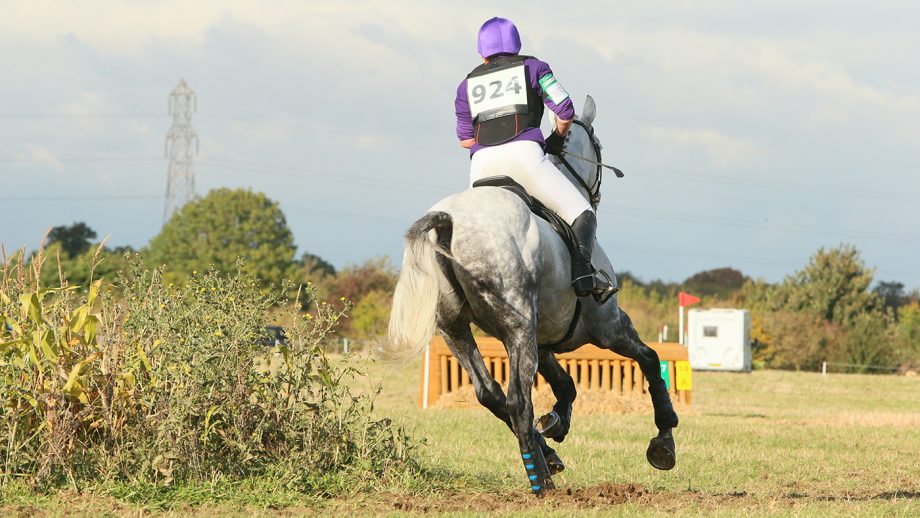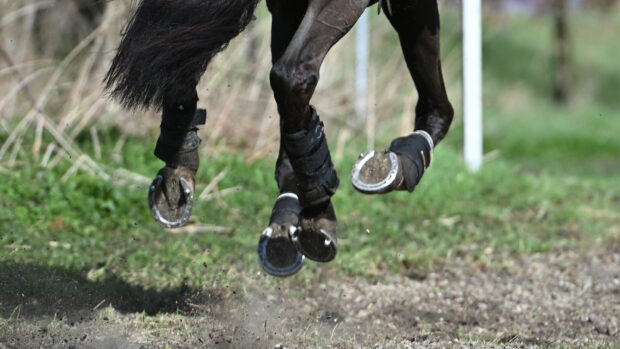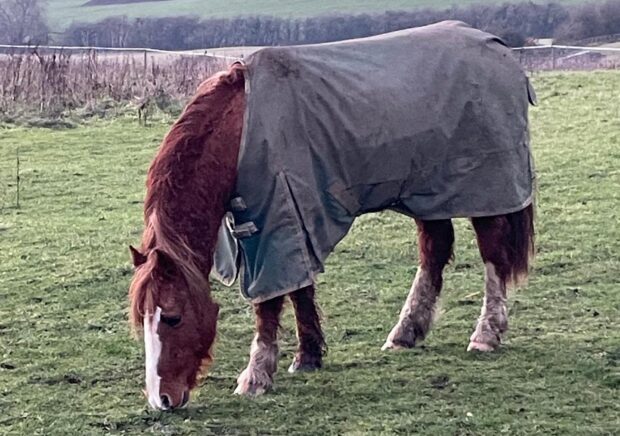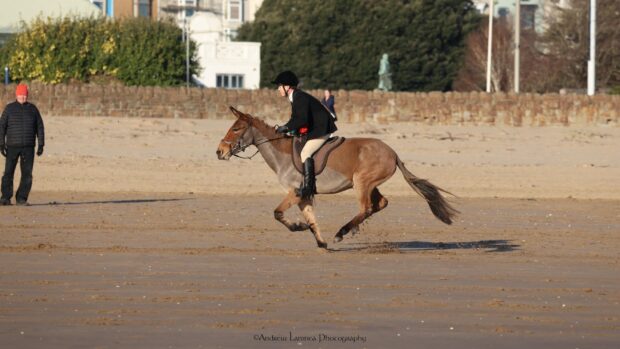Detail of how British Eventing’s (BE) abandonment support fund will work have been confirmed – alongside a number of rule changes ahead of the start of the season.
Last month BE announced a new fund that will provide competitors with “discretionary goodwill payments” of up to 60% of the entry fee, when uninsured events abandon owing to extreme and/or adverse weather conditions. BE pledged a £75,000 initial contribution, and the remainder will be funded by a 5% surcharge on all competitors’ entry fees, plus 2% of entry fees by organisers of events that do not have their own abandonment insurance policies (news, 14 December).
BE has confirmed that this 5% levy will be payable by the competitor at the time of entry, and “treated in the same way as the start fee”, so if a competitor withdraws before starting the event it will be refunded in full.
“If a competitor starts in the event, subsequently withdraws and the event later weather-abandons, the competitor may be eligible for a goodwill payment. The competitor levy is payable in relation to all entry fees, whether or not the fixture is an insured fixture,” reads the rule.
BE states that in the event “BE determines that the fund is unable to meet the anticipated goodwill payments, BE reserves the right to vary the amount of any payment offered by the fund”.
The fund will not provide goodwill payments to competitors at insured events – but BE will reduce the affiliated fee payable by the organiser in respect of each entry where an insured event abandons owing to weather. All other events “may be eligible” for support from the fund for weather abandonment after the ballot date or 21 days before the event.
“BE will also reduce the affiliation fee payable by the organiser in respect of each entry where an uninsured event weather abandons,” the rule states.
In the event that an uninsured event abandons to weather, the organiser is liable to refund only the proportion of the entry fee set out by BE. If the fund does not make any goodwill payment for any reason, the competitor will receive only the refund contribution payable by the organiser.
On 19 January Weston Park organisers announced that the event had come to a close, having been quoted a 24% premium to cover the sum being insured for its spring and autumn events. This year would have been the event’s return to the calendar, having not run since 2022.
“The financial risks of running a greenfield site event with the added burden of being sandwiched between two FEI events with no chance of a change of date puts us under financial pressure,” said the organisers Janet and Vicky Plant.
Janet told H&H that even with the new BE abandonment fund, “although entry fees are extremely expensive, events cannot run on entry fees alone”, and if an event abandons there is still the “financial stress” of repaying sponsorship, trade stands, start fees, gate admission and service contracts.
“We have to be able to ensure all these other things are paid back, otherwise the following year they’re not going to come back and support you,” she said.
“It’s also the fact that many insurance underwriters are not taking on outdoor activities because they’ve had such a terrible time with huge losses because of the weather. I think there’s more to the problem and a lot of people who need to pay reasonable sized rents will not be able to sit back and say, ‘We can swallow this’, because we can’t.”
Janet added that there still needs to be more communication between BE, organisers and riders – and she believes that more events could be forced to cancel for financial reasons.
“We still have Chillington Park in June and September, which is fabulous, but that, like all other events going forward, is going to be tricky. Once the new abandonment fund is empty, what happens then? We are really afraid that if March is bad weather, that fund could be wiped out very quickly.”
BE chief executive Rosie Williams told H&H BE had “extensive conversations” with Weston Park and they are unable to move to a different date “due to constraints from their land owners”, combined with “significant increases in ground rent, all of which has made things too challenging for them to run”.
In other rule changes for 2024, entry fees for national classes will increase by 8%, and those for international classes by 12%.
“We have met with the organiser groups, and they have requested an increase in event entry fees to help them to continue to run viable events in an environment of ever-increasing base costs,” said a BE spokesman.
“We are conscious of the costs of sport in this climate, but we also need to ensure that our organisers are running viable events.”
Downgraded horses may now compete at the grassroots championships at Bramham and Badminton. Riders may not have completed at intermediate level or higher.
Ms Williams said this decision was made following discussions with “all stakeholder groups”.
“These discussions were the result of feedback and requests from members with horses who, for example, may have been awarded a single point many years previously or who may not have even competed at all for many years,” she said.
The continuing performance requirements have been amended; a horse who has four eliminations, of any type, within a 12-month rolling period may not compete again at that level or the highest level at which the eliminations were incurred until a minimum eligibility requirement round has been completed. This was previously three eliminations.
Ms Williams said: “Following the latest end-of-season data analysis it was decided that the continuing performance requirements in respect of cumulative refusals could be relaxed as per our new rule.”
New vaccination rules require that the timeframe for any new primary vaccination course be that the first booster is administered within six months and 21 days of the second vaccine. In addition, any horse competing should have had a booster within six months and 21 days of competition.
“Our event calendar is notably complicated because we often have international and national classes happening at the same venue on the same day,” said BE chief veterinary officer Ali Butler.
“While some international venues have stabling on site and we can keep the stabling separate, others don’t for short format, and horses are travelling and stabling elsewhere with horses competing under national rules and therefore different vaccination statuses.
“We are also doing this in the horses’ best interests and to give them the optimal immunological protection when at the highest risk; that is, during the competition season.”
You might also be interested in:

British Eventing CEO Rosie Williams: ‘Running a sport’s governing body is as challenging as competing at five-star’

Abandonment fund, new charity and fixtures: British Eventing back on track after ‘facing going broke’

Date changes, replacements, and the return of events: British Eventing 2024 fixture list released

Subscribe to Horse & Hound magazine today – and enjoy unlimited website access all year round
Horse & Hound magazine, out every Thursday, is packed with all the latest news and reports, as well as interviews, specials, nostalgia, vet and training advice. Find how you can enjoy the magazine delivered to your door every week, plus options to upgrade your subscription to access our online service that brings you breaking news and reports as well as other benefits.




